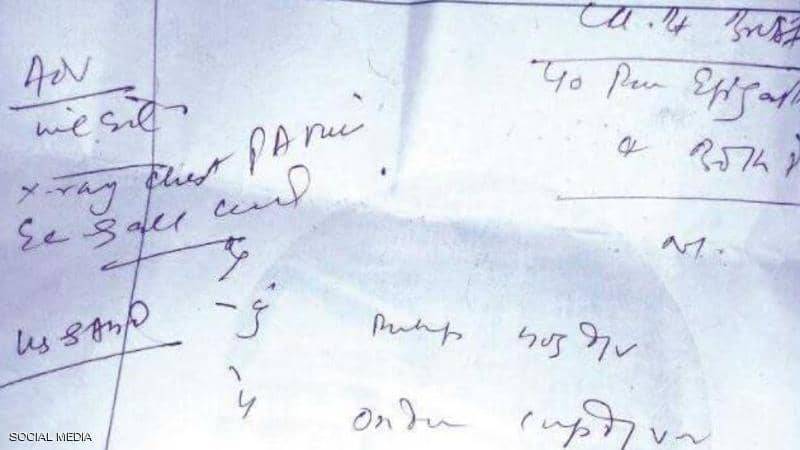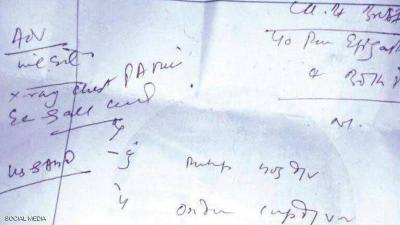By law, doctors in Morocco are now required to improve their handwriting when writing medical prescriptions for patients to ensure they are readable by everyone. Moroccan legislators have made "illegible" prescriptions a thing of the past through a new decree concerning the medical ethics code, published in the official journal. The Moroccan government approved weeks ago an amendment to the medical ethics code presented by the Minister of Health.
The mentioned amendment obligates doctors to prescribe treatment clearly and in a readable handwriting, ensuring that the patient and their surroundings can understand it, and to strive for proper application. Citizens have long complained about some doctors' illegible handwriting on medication prescriptions, which became so cryptic that only pharmacists could decipher them.
**Strict Legislation**
According to a government statement, the latest amendment was made in agreement with the National Council of Doctors and Physicians, aligning with the law related to the council that stipulates the "general obligations imposed on physicians" and the "relationship between physicians and patients." The new legal amendment also prohibits doctors from accepting gifts, either in kind or cash, or any other excessive benefits from patients.
Furthermore, under the new legislation, a doctor may not exploit their influence to obtain a mandate or contract from the patient on preferential terms in an unnatural manner. The doctor is also prohibited from deceiving the patient by taking advantage of their situation and ignorance of the medical field, and any action that might grant the patient an unjustified or illegal financial benefit is also forbidden.
**The Reason Behind Poor Handwriting**
Khaled Fathi, a professor at the Faculty of Medicine at Mohammed V University in Rabat and a researcher in health issues, welcomed the new provisions "that will protect the patient." He stated in an interview with "Sky News Arabia": "Requesting doctors to improve their handwriting is not a luxury as some claim; rather, it is an important demand aimed at ensuring the patient's interest and facilitating their understanding of the prescription. It will also help the pharmacist avoid making mistakes due to unclear writing."
Fathi attributed poor handwriting among some doctors to their training period, stating, "Medical students are required to write lengthy notes quickly, leading them over time to abbreviate words in a way that only they understand." He added that "technology is now accessible, and doctors can resort to using it to print their prescriptions clearly to avoid any confusion."
**Strengthening the Legal Framework**
On another note, legal researcher Yasmina Dubich indicated that this decree came after numerous criticisms directed at doctors regarding their writing of treatment prescriptions for their patients. She told "Sky News Arabia": "In reality, the least that can be said about some doctors' prescriptions is that they are unclear and shrouded in ambiguity, comprehensible only to specialists." She pointed out that "many doctors, especially in the private sector, had resorted to modern technologies and electronic means in drafting their prescriptions, clearly indicating the type of medication and the correct dosages that should be taken, and the appropriate timing for doing so."
Dubich emphasized that "this decree serves to strengthen the legal framework governing medical ethics on one hand and to protect the health and safety of patients on the other, considering that any mistake in prescribing medication or diagnosing a medical condition can lead to serious consequences."




